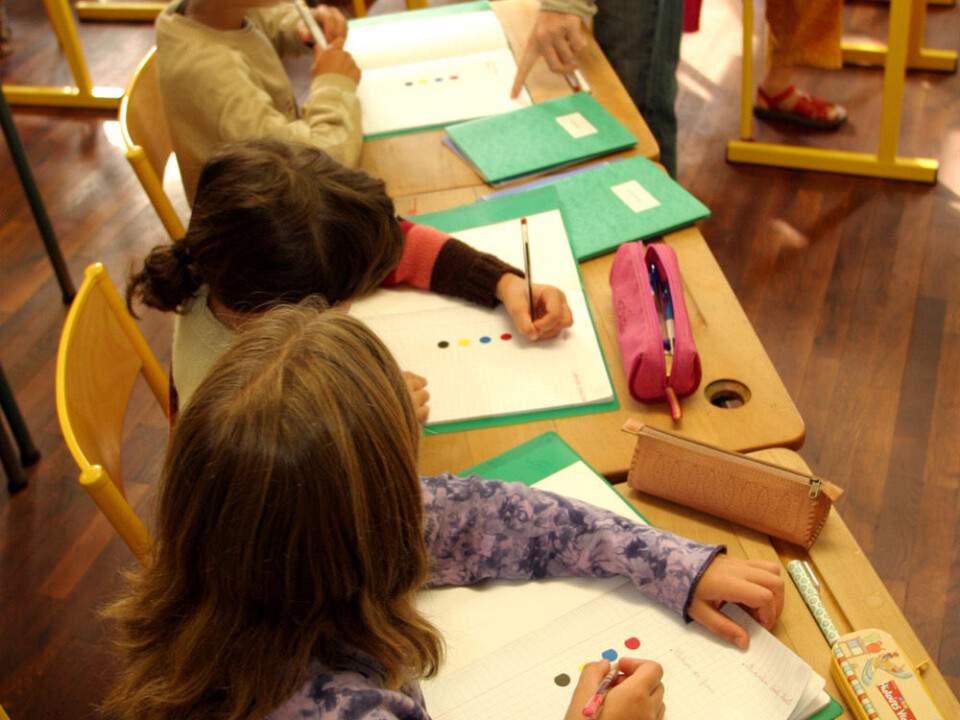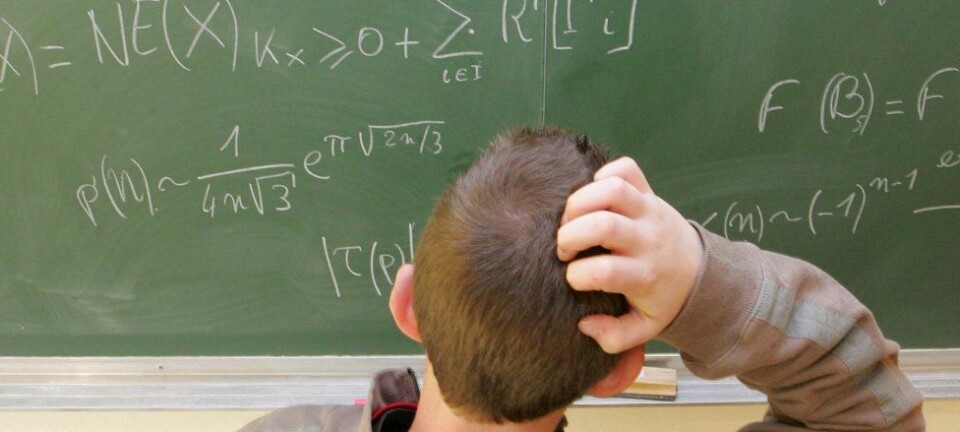This article was produced and financed by Oslo Metropolitan University

Classroom culture decisive for learning
Teachers must exploit pupil culture to enhance teaching, according to new study.
Denne artikkelen er over ti år gammel og kan inneholde utdatert informasjon.
The culture in a classroom is not only important for the social environment; it is also decisive for the learning process.
“Anyone who is going to lead a class must know what they are supposed to be leading,” says researcher Simon Michelet at the Oslo and Akershus University College of Applied Sciences, who recently completed his doctoral thesis on pupil culture.
And what is a school class? What characterises a class as a phenomenon, beyond the fact that each one contains around 25 pupils? asks the researcher.
Michelet emphasizes that understanding this pupil culture is decisive for being able to lead a school class, but teachers today have few theoretical concepts for understanding pupil culture.

“Pupil culture is a key element in understanding what a class is," says Michelet.
Observed student culture
Simon Michelet teaches future primary and lower secondary school teachers at the university college. He also has many years of experience as a teacher in the primary and lower secondary schools.
For much of his teaching career he has been concerned with interaction between students, how pupil culture has significance for what goes on in the classroom.
Studying what goes on in the classroom from the perspective of culture is an important supplement to didactics (educational science) and psychology, which dominate teacher education today.
Michelet believes that academic and social learning are closely knit and that they are two aspects of the same process rather than two distinct ones.
For the past three years he has followed a first-grade and eighth-grade class, and has observed and conducted in-depth interviews with pupils in order to understand more about pupil culture and how it affects the learning process.
Relegated to break periods
Michelet illustrates his point with an example taken from his fieldwork. Among first graders, boys in particular, competition generates a lot of fun: first one to their desk, first one to open their lunch box, etc. It is a simple and uncomplicated game - a game with humour and excitement.
One day, the maths teacher gives an assignment on number comprehension. They should all start at the same time and work on the same assignment paper.
“The assignments were good, but when the first graders were asked to start at the same time, it triggered a contest to be the first one to finish. It didn't help the students to develop their number comprehension," says Michelet.
Lack theoretical knowledge
“A cultural perspective is almost non-existent in the knowledge base for teacher training,” says Michelet, “And the little that does exist concentrates on the pupil-teacher relationship."
Teacher training therefore has little to offer pupils in this area. The teacher’s knowledge is based primarily on experience. Michelet thinks that pupil culture as a new theoretical concept could help develop teachers’ knowledge.
Teachers notice when some of their pupils are being defiant, but this is often explained by characteristics in individual pupils, such as two strong leaders taking the lead.
“It may well be that there are two strong leaders, but what significance that has for their fellow pupils’ participation in learning processes is dependent on the pupil culture,” he says.
Michelet is concerned that teachers’ theoretical knowledge must also include concepts that explain why this occurs, what takes place, and what courses of action the teacher has.
A force in teaching
Michelet emphasizes that the teacher must not view pupil culture as an enemy, but rather as a force which he/she can exploit in order to reinforce the teaching:
“You can curb the pupil culture and try to restrain it, but then you lose something vital. The teacher must be sensitive to pupil culture,” says Michelet, “because then she will spot something she might otherwise have missed. She can’t control the culture that arises between the pupils, but she can influence it so that it pulls in the same direction as that of the school. The teacher has to ally herself with the pupil culture.”
The pupils are not only supposed to learn to write and do maths; they should also learn to become independent and capable people. An important task for the school is to give the pupils an understanding of democracy.
“Citizens in a pluralist democracy will not cope very well without it,” says Michelet.
Can intervene and influence
Michelet stresses that the pupils must be permitted to negotiate for themselves if they are to acquire a democratic understanding. If they show signs of moving in the wrong direction, the teacher needs understanding and intuition if she is to intervene and influence what happens next.
The school must give each pupil room for responsible, personal development, but it must also challenge them to adapt and contribute to the community:
“This is where the school can play a part in developing a society which provides more opportunities for equal development for everyone," concludes Michelet.
































